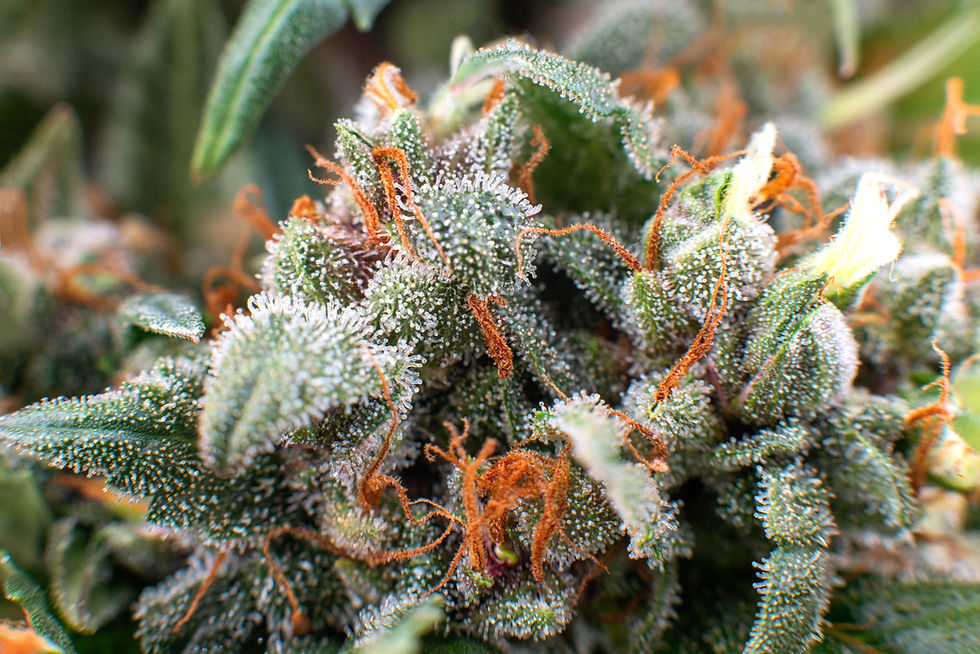Federal Circuit Proceeding with IP Case Suggests Cannabis Patents Enforceable under Federal Law
- Ben Williams
- Aug 6, 2019
- 3 min read
Even though cannabis has been legalized in some states, it remains a schedule 1 controlled substance under federal law.
The Attorney General has yet to prosecute anyone in legal states for violating that law, although the commerce power has been leveraged by the federal government to control the cultivation of marijuana in the past. See for example Gonzales v. Riach, 545 U.S. 1 (2005) (commerce clause of the Constitution gives Congress the power to criminalize the production and use of homegrown cannabis even where legal in a state). Thus far, in Colorado at least, and for the most part, all has been quiet on the Western front....
While the cannabis industry has thus boomed, federal questions persist. Chief among them: whether the issuance of patents protecting cannabis cultivars (plant patents) and patents for inventions in the cannabis space are enforceable under federal law.
Interestingly, the USPTO has granted many patents in the cannabis space. Our firm has secured several. And the USPTO has issued plant patents for cannabis cultivars at least as early as 2016. While this suggests a growing federal acceptance of cannabis intellectual property it bears keeping in mind that the USPTO is an administrative agency - its "law" is not the same as the that cemented by precedent and upheld under stare decisis at the federal circuit or determined at the Supreme Court - which law becomes the "supreme law of the land".
Thus a nagging question has remained as to whether or not a patent secured in the cannabis space will be actually enforceable under federal law.
Would the Federal Circuit even hear such a case?
Recent action at the 10th Circuit suggests so.
United Cannabis Corp. (UCANN) filed suit last summer in the Federal District Court in Denver, Colo., alleging infringement of US Patent No. 9,730,911, issued on August 1, 2017, for a cannabinoid-based medical product formula. This was a formulation derived from federally illegal cannabis plants.
The defendant, Pure Hemp Collective, Inc., filed for partial summary judgment, arguing that the asserted patent is invalid as applying to a law of nature. Judge William Martinez, however, dismissed the motion, recognizing a potential for human ingenuity in developing and extracting the formulation and, at the same time, suggesting intellectual property for cannabis is enforceable.
Patent geeks may delight in the fact that this case appears at the cutting-edge of evolving patent law. Intriguingly, no claim of invalidity has been made on the basis of federal illegality of the subject matter in question, since this is something each party to the case is obviously reluctant to allege. But the fact that the case has come down to the Alice-Mayo test for patent-eligibility under 35 U.S.C. § 101 places this case under new guidelines issued form the USPTO this January in applying the prongs of the Alice-Mayo test, and not to questions of federal legality. This is an important and evolving part of patent law; another intriguing influence cannabis may play in a legal world.
Modernly, the 101 rejection most commonly arises in software patents, but it also applies to patents directed to natural phenomena – Pure Hemp's argument is that UCANN's patent is invalid because it is directed to naturally occurring substances and not to a product of human ingenuity.
This places this case in the spotlight on two counts. 1. Patent-eligibility for cannabis as derived from natural sources and 2. the enforceability of a cannabis patent under federal law. The former is relevant to the proprietary interest in the production of cannabis products. The latter is of interest as a legal question with implications for the future of cannabis intellectual property.
Consider what this means for another type of patent - plant patents at the USPTO. A plant patent (granted, not the same as the patent in question in this suit) protects any non-tuberous, asexually reproducible plant discovered in a cultivated area. A plant patent grants the holder a 20 year monopoly on all parts of the patented plant - including seeds. This is a hugely under-appreciated asset which the cannabis industry is sure to change. To date, of the 8,151 examiners at the USPTO, only 2 examine plant patent applications.
Cannabis cultivation, and the selective breeding of particular strains of cannabis cultivars, readily meets eligibility requirements for plant patent protection. If federal law upholds intellectual property in the cannabis space, securing a patent for newly developed cannabis strains will be the next logical step to legitimizing the cannabis industry – it will protect state-grows from the encroachment of large corporate interests, already poised to enter the market, and it will make the first "green-leaf" billionaires.






Comments